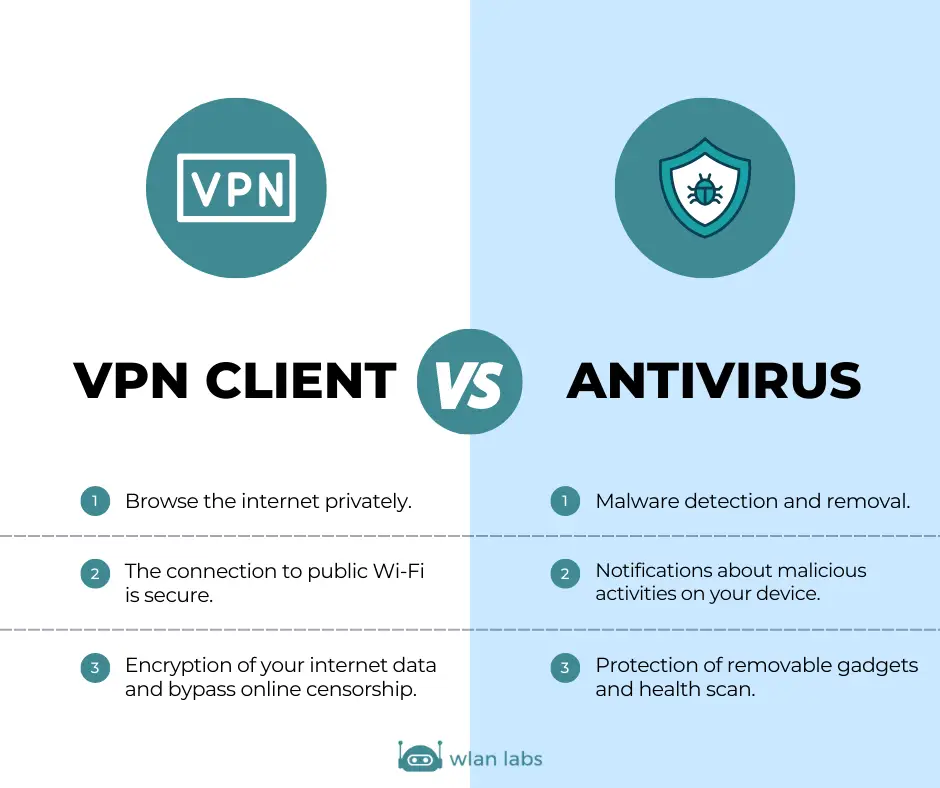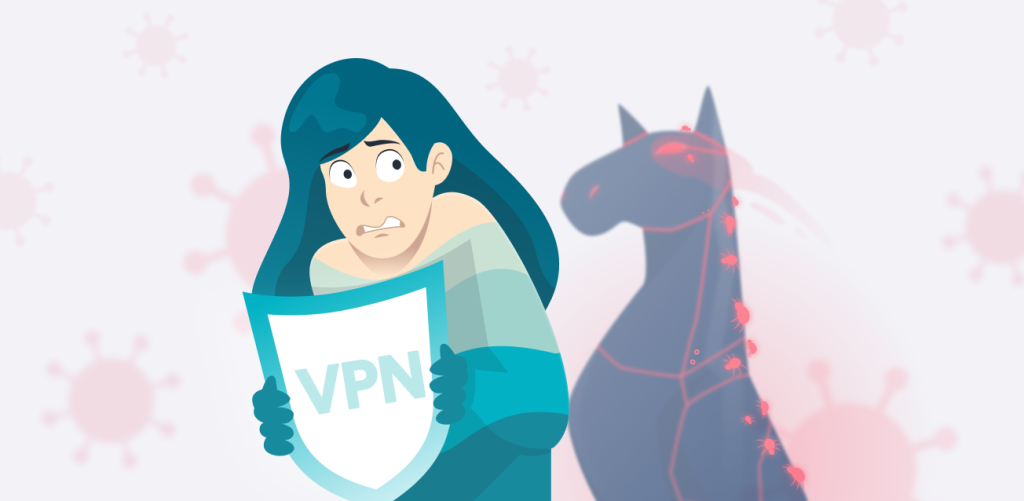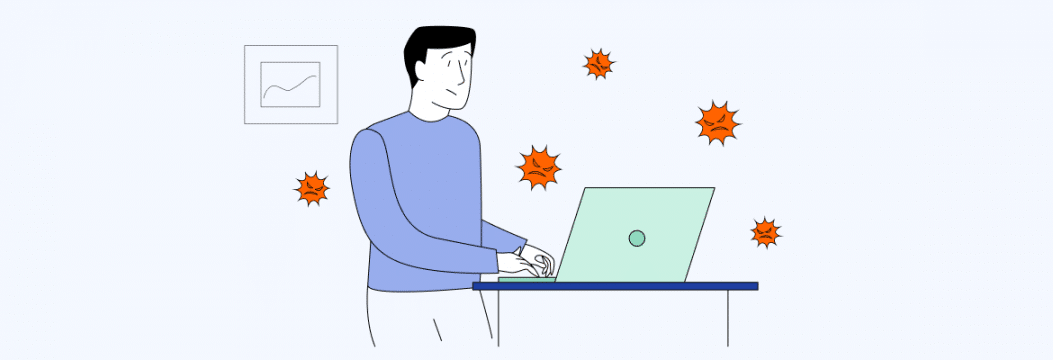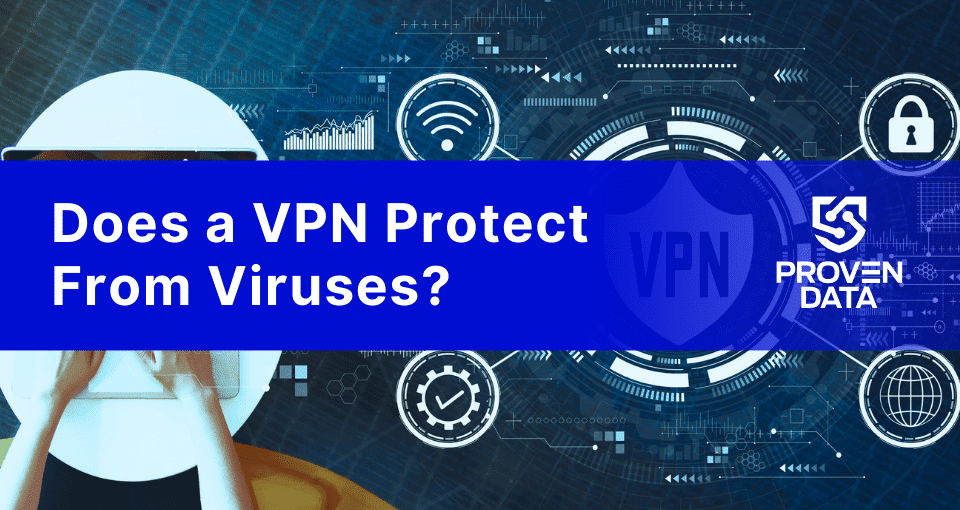A VPN does not protect you from viruses. It primarily encrypts your internet connection, enhancing privacy and security.
In today’s digital landscape, online threats are more prevalent than ever. Cybercriminals use various tactics to infect devices, steal data, and compromise personal information. While a Virtual Private Network (VPN) is an effective tool for safeguarding your online privacy, it does not eliminate the risk of viruses.
Users often confuse VPNs with antivirus software, but they serve different purposes. VPNs encrypt your internet traffic, making it harder for hackers to access your data while browsing. Understanding the limitations of a VPN helps users adopt a more comprehensive approach to online security, combining it with antivirus programs and safe browsing habits for optimal protection.

Credit: www.linux-wlan.org
The Essence Of Vpns
Virtual Private Networks, or VPNs, offer online privacy and security. They create a secure connection between your device and the internet. This helps protect your data from prying eyes. But do VPNs protect you from viruses? Understanding how VPNs work is essential.
What Is A Vpn?
A VPN is a tool that encrypts your internet traffic. It hides your online activity from others. Here are some key points about VPNs:
- Encryption: VPNs encrypt your data. This makes it unreadable to outsiders.
- IP Address Masking: VPNs hide your real IP address. This keeps your location private.
- Secure Connection: VPNs create a secure tunnel for your data.
How Vpns Work
VPNs operate through a few simple steps:
- Connect: You connect to a VPN server.
- Encrypt: Your data gets encrypted.
- Route: Your data travels through a secure tunnel.
- Access: You access websites anonymously.
Here’s how this process adds to your security:
| Step | Description |
|---|---|
| 1. Connect | Choose a VPN server to connect. |
| 2. Encrypt | Your data becomes unreadable during transfer. |
| 3. Route | Your data travels through a secure channel. |
| 4. Access | You can browse securely and privately. |
While VPNs enhance your online security, they do not prevent viruses. They secure your connection but do not act as antivirus software. Always use antivirus programs alongside a VPN for complete protection.

Credit: surfshark.com
Common Misconceptions About Vpns
Many people misunderstand what a VPN can do. They think it solves all online problems. This section explores some of these common misconceptions.
Vpn As A Digital Panacea
A VPN is not a cure-all for internet safety. Here are some key points:
- VPNs encrypt your data but do not stop viruses.
- They do not protect against phishing attacks.
- VPNs do not replace antivirus software.
Many users believe a VPN makes them invincible online. This belief can lead to risky behavior. Always use a VPN with other security measures.
The Confusion Between Anonymity And Security
Many people think anonymity equals security. This is incorrect. Here’s why:
| Aspect | Anonymity | Security |
|---|---|---|
| Definition | Hides your identity online | Protects your data from threats |
| VPN Role | Offers anonymity | Does not guarantee full security |
| Need for Protection | Still at risk from malware | Requires antivirus software |
Users must understand these differences. Relying only on a VPN is risky. Always combine it with other tools for better safety.
The Real Deal: Vpns And Virus Protection
Many people wonder about the role of a VPN in virus protection. VPNs offer privacy and security, but they do not eliminate all risks. Understanding how a VPN works can help clarify its effectiveness against viruses.
Vpn Security Features
VPNs come with several security features. These features enhance online safety but do not directly protect against viruses. Here are some key features:
- Encryption: This scrambles your data, making it unreadable to hackers.
- IP Masking: This hides your real IP address from prying eyes.
- Kill Switch: This cuts your internet connection if the VPN fails.
- No-Log Policy: This means the VPN does not store your activity data.
These features help keep your information safe. They do not scan or remove viruses from your device.
Limits Of Vpn Protection Against Viruses
VPNs have limitations in protecting against viruses. Here are some critical points:
| Limitations | Description |
|---|---|
| Does Not Scan | VPNs do not scan for viruses or malware on your device. |
| Infected Files | Downloading infected files can still harm your device. |
| Phishing Sites | VPNs cannot protect you from fake websites designed to steal data. |
Using a VPN is wise for privacy. It is not a complete shield against viruses. Always use antivirus software alongside a VPN for better protection.
Case Studies: When Vpns Couldn’t Stop Viruses
VPNs offer many benefits, including privacy and security. Yet, they can’t fully protect against all threats. Here are some case studies where VPNs failed to prevent virus infections.
Real-world Incidents
Several incidents highlight VPN limitations. Users believed they were safe but faced infections. Here are a few notable examples:
| Incident | Description | Outcome |
|---|---|---|
| Public Wi-Fi Attack | A user connected to a public Wi-Fi with a VPN. | Malware spread through a compromised network. |
| Phishing Email | A user clicked a link in a phishing email. | Virus installed despite VPN protection. |
| Malicious Software Download | A user downloaded software from an untrustworthy site. | Infection occurred even with VPN active. |
Analysis And Lessons Learned
These incidents show VPNs don’t stop every threat. VPNs protect data in transit. They don’t scan for viruses or malware on devices.
- Public Networks: Always be cautious on public Wi-Fi.
- Phishing Awareness: Don’t open unknown emails.
- Safe Downloads: Only download from trusted sources.
VPNs are useful but not foolproof. Combine them with antivirus software. Stay vigilant against new threats.
Complementing Vpn Protection
Using a VPN is great for online privacy. It hides your IP address and encrypts your data. However, a VPN does not protect against viruses. To stay safe online, you need other tools.
Essential Antivirus Software
Antivirus software is crucial for your device’s safety. It finds and removes harmful viruses and malware. Here are some benefits of using antivirus software:
- Real-time protection: Stops threats before they harm your device.
- Regular updates: Keeps your software current against new threats.
- System scanning: Checks your device for existing threats.
- Safe browsing: Alerts you about unsafe websites.
Choose a trusted antivirus solution. Look for user reviews and expert recommendations. Regularly scan your system for the best protection.
Safe Browsing Practices
Safe browsing habits are vital for online security. Here are some tips to follow:
- Always use strong passwords.
- Avoid clicking on unknown links.
- Keep your software updated.
- Use two-factor authentication when possible.
- Be cautious with public Wi-Fi connections.
Educate yourself about phishing scams. These tricks aim to steal your personal information. Stay informed to avoid falling victim.
Choosing The Right Vpn
Selecting a VPN can be overwhelming. Many options exist, each claiming to offer the best protection. Understanding the key features can help you make the right choice. A good VPN enhances privacy but does not prevent viruses. Here’s how to choose wisely.
Key Features To Look For
Focus on these essential features:
- Encryption: Look for strong encryption methods like AES-256.
- No-logs policy: Choose a VPN that does not track your online activity.
- Kill switch: This feature disconnects the internet if the VPN drops.
- Multi-device support: Ensure the VPN can protect multiple devices.
- Customer support: 24/7 support can resolve issues quickly.
Red Flags And Misleading Claims
Beware of these warning signs:
- Too good to be true: Free VPNs may sell your data.
- Unclear terms: Avoid services with vague privacy policies.
- High-speed claims: Excessive speed promises often lead to hidden issues.
- Limited transparency: Check for audits and user reviews.
Stay informed. Protect your online experience by choosing wisely.
Final Verdict: Myth Vs. Reality
Understanding if a VPN protects you from viruses is crucial. Many believe a VPN blocks all threats. This section clarifies the myths and realities. Let’s explore the findings and help you make an informed decision.
Summary Of Findings
A VPN, or Virtual Private Network, encrypts your data. This helps keep your information private. However, it does not protect against viruses. Here are key points:
- Data Encryption: VPNs secure your internet connection.
- Privacy Protection: They hide your IP address.
- No Virus Protection: VPNs do not scan for malware.
- Limited Security: They protect online activities only.
Use antivirus software alongside a VPN. This combination offers better protection.
Making An Informed Decision
Choosing a VPN requires knowledge. Consider these factors:
- Purpose: Decide if you need privacy or security.
- Software: Use antivirus programs with a VPN.
- Reputation: Research VPN providers thoroughly.
- Compatibility: Ensure your VPN works with your devices.
Always stay informed about online threats. Protect your devices with multiple layers of security.

Credit: veepn.com
Frequently Asked Questions
Does A Vpn Prevent Viruses?
A VPN does not prevent viruses. Its primary function is to encrypt your internet connection and protect your privacy. To guard against viruses, you need reliable antivirus software. A VPN can enhance your security, but it’s not a substitute for malware protection.
Can A Vpn Stop Malware Attacks?
No, a VPN cannot stop malware attacks. It helps secure your connection and hide your IP address. However, it does not scan for or remove malware. Always use antivirus software alongside a VPN for comprehensive protection against malware threats.
Does A Vpn Protect Against Phishing Scams?
A VPN does not directly protect against phishing scams. It can obscure your online activity, but phishing relies on deceptive tactics. Always be cautious with emails and links. Using a VPN in combination with good cyber hygiene can help enhance your overall safety.
Is Antivirus Needed If I Use A Vpn?
Yes, antivirus is still needed with a VPN. While a VPN encrypts your data, it does not detect or remove viruses. Antivirus software specifically targets malware threats. Relying solely on a VPN leaves you vulnerable to various cyber threats.
Conclusion
A VPN is a powerful tool for online privacy and security. While it encrypts your data and masks your IP address, it does not directly protect you from viruses. To stay safe, always use antivirus software alongside your VPN. This combination offers a comprehensive defense against online threats.
Stay protected online!


0 comments